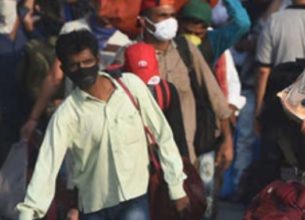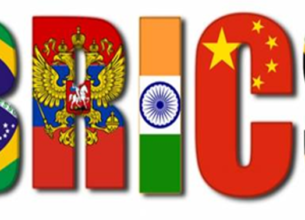GLOBAL UNEMPLOYMENT AMIDST COVID-19
20, Mar 2020

Prelims level : Growth, Development, National
Mains level : GS-III Indian Economy and Issues Relating to Planning, Mobilization of Resources, Growth, Development and Employment.
Why in News?
- The International Labour Organization (ILO) has recently said that the COVID-19 pandemic will drastically increase global unemployment, leaving up to 25 million more people out of work and slashing incomes.
About ILO:
- It is the only tripartite U.N. agency. It brings together governments, employers and workers of 187 member States, to set labour standards, develop policies and devise programmes promoting decent work for all women and men.
- It was established in 1919 by the Treaty of Versailles as an affiliated agency of the League of Nations and also became the first affiliated specialized agency of the United Nations in 1946.
- Headquarters:Geneva, Switzerland.
- India is a founding member of the ILO and it has been a permanent member of the ILO Governing Body since 1922.
- The organization has played a key role in
- Ensuring labour rights during the Great Depression
- Decolonization process
- The creation of Solidarnosc( trade union) in Poland
- The victory over apartheid in South Africa
What are its Key Findings?
- The International Labour Organization (ILO) has warned that the economic and labour crisis sparked by the coronavirus will have far-reaching impacts on labour market outcomes.
- The ILO said that by comparison, the global financial crisis of 2008-09 increased global unemployment by 22 million.
- A study based on the report suggests that the world should prepare to see a significant rise in unemployment and underemployment in the wake of the pandemic.
- In the best-case scenario, 5.3 million more people will be pushed into unemployment.
- In the worst case scenario, 24.7 million more will become jobless, on top of the 188 million registered as unemployed in 2019.
- Underemployment is also expected to increase on a large scale, as the economic consequences of the virus outbreak translate into reductions in working hours and wages.
- Self-employment in developing countries usually serves to cushion the impact of economic shifts but this time due to the severe restrictions on the movement of people and goods, it might not help.
- Reductions in access to work will also mean large income losses for workers.
- The study estimates the income loss between $860 billion and $3.4 trillion by the end of 2020, which will translate into falls in consumption of goods and services, in turn affecting the prospects for businesses and economies.
- The number of people who live in poverty despite holding one or more jobs will also increase significantly.
- The strain on incomes resulting from the decline in economic activity will devastate workers close to or below the poverty line.
- Some groups will be disproportionately impacted by the jobs crisis, including youth, older workers, women and migrants which will only increase the already Prevailing Inequality.
What are its Suggestions?
- The ILO has called for urgent, large-scale and coordinated measures to protect workers in the workplace and stimulate the economy, employment and job support through social protections, paid leave and other subsidies.
- It is suggested to tackle this pandemic in the same way the global financial crisis of 2008 was tackled, by presenting a united front to address the consequences.
















